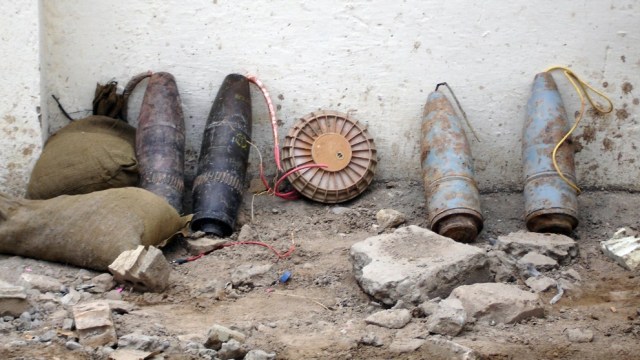Hersh: Nuclear Mutiny in Pakistan?

One word haunts Seymour Hersh’s new investigative piece about the potentially shaky security of Pakistan’s nuclear arsenal: “mutiny.” As Hersh writes, “the Taliban overrunning Islamabad is not the only, or even the greatest, concern. The principal fear is mutiny—that extremists inside the Pakistani military might stage a coup, take control of some nuclear assets, or even divert a warhead.”
In pooh-poohing the prospect of mutiny, Pakistani President Asif Ali Zardari shows more confidence in the basic logic and sanity of the world than one might expect from a man whose wife was assassinated during her own 2007 run for office. The widow of former Prime Minister Benazir Bhutto put it like this:
“Our Army officers are not crazy, like the Taliban. They’re British-trained. Why would they slip up on nuclear security? A mutiny would never happen in Pakistan. It’s a fear being spread by the few who seek to scare the many.”
Maybe it’s mere semantics. But my ears twitch a bit when I hear the words “a mutiny would never happen in Pakistan.” Pakistan is, after all, a country that has experienced four military coups in its six decades of existence. It would seem to say something bleak about a country’s accepted power structure when a civilian president sees a military-led overthrow as something other than, well, mutinous.
But all that, as I noted, may just be semantics. We should move on.
Two of the more interesting passages in Hersh’s piece both happen to include a form of the word “rent.”
“Rent” doesn’t mean anything special to me. Rather, I will quote these passages because: 1) they’re fresh, interesting, and arguably very worrisome; 2) unlike some of the most eye-popping revelations in Hersh’s work, they are attributed to named sources.
I have no concrete reason to doubt Hersh’s unnamed sources. As an investigative reporter, Hersh is legendary. But seeing as I’m writing this at my kitchen counter and I don’t have any super-secret sources of my own in the clandestine upper echelons of government, I simply don’t know how to arbitrate between anonymous assertions and official denials. So I won’t try. Read the piece. Judge for yourself.
Instead, as promised, those “rent” quotes.
The first involves President Zardari. Hersh writes that Zardari told him that “his government was not ‘ready’ to kill all the Taliban. His long-term solution, Zardari said, was to provide new business opportunities in Swat and turn the Taliban into entrepreneurs. ‘Money is the best incentive,’ he said. ‘They can be rented.'”
Who am I to say this won’t work? Truly. I wish Zardari luck in renting the Taliban. It would be a wonderful resolution to Pakistan’s crisis. And it would sure beat the prognosis offered in the second “rent” quote.
The second quote comes from Sultan Amir Tarar, who Hersh describes as “the archetype of the disillusioned Pakistani officer.”
Tarar, who retired in 1995 and has a son in the Army, believed—as did many Pakistani military men—that the American campaign to draw Pakistan deeper into the war against the Taliban would backfire. “The Americans are trying to rent out their war to us,” he said. If the Obama Administration persists, “there will be an uprising here, and this corrupt government will collapse. Every Pakistani will then be his own nuclear bomb—a suicide bomber,” Tarar said. “The longer the war goes on, the longer it will spill over in the tribal territories, and it will lead to a revolutionary stage.”
Tarar’s advice: the Obama Administration should negotiate with the Afghan Taliban, even if that means direct talks with Mullah Omar, the Taliban leader.
Hersh’s piece, “Defending the Arsenal,” is in the November 16 issue of The New Yorker and available online now.





